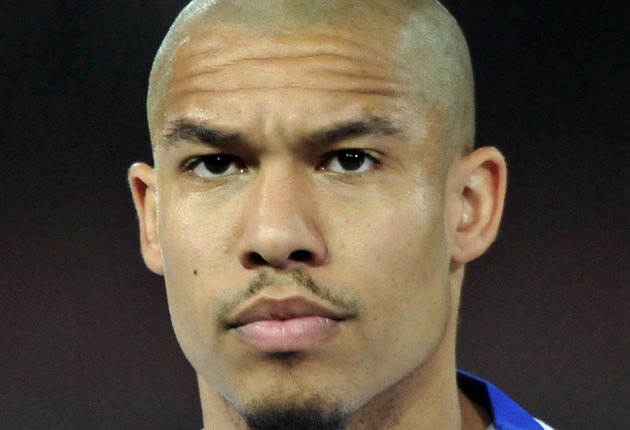'People are afraid of something new, but that is what's coming'
City only criticised because of big spending, insists club's hard-tackling Dutch midfielder Nigel de Jong

Your support helps us to tell the story
From reproductive rights to climate change to Big Tech, The Independent is on the ground when the story is developing. Whether it's investigating the financials of Elon Musk's pro-Trump PAC or producing our latest documentary, 'The A Word', which shines a light on the American women fighting for reproductive rights, we know how important it is to parse out the facts from the messaging.
At such a critical moment in US history, we need reporters on the ground. Your donation allows us to keep sending journalists to speak to both sides of the story.
The Independent is trusted by Americans across the entire political spectrum. And unlike many other quality news outlets, we choose not to lock Americans out of our reporting and analysis with paywalls. We believe quality journalism should be available to everyone, paid for by those who can afford it.
Your support makes all the difference.It is hard for Nigel de Jong to leave behind the event which has scarred his season, even though he can reflect on the prospect of Manchester City finally beginning to reap what they have sowed in this evening's FA Cup semi-final.
A full six months have passed since the tackle on Newcastle United's Hatem Ben Arfa which put the Frenchman out of the game until his first tentative training sessions this week, yet the City midfielder still finds himself asking why the challenge led to him being ostracised and pilloried. "In Holland, it was much worse than in England," he reflects. "There was a witch hunt and the only thing for me was my family were suffering. Why [in the Netherlands]? You'll have to ask them. I've asked myself that question to be honest."
It was the immediate decision of Dutch coach Bert van Marwijk to drop the 26-year-old from the national squad which fuelled a debate which raged here, too. The force of De Jong's tackles will always earn him detractors but among the observers most infuriated by Van Marwijk's decision was actually Lou Macari, who remembered a thumping challenge from Liverpool's Jimmy Case which left him flat out on the Wembley turf in the 1977 FA Cup final. That was football, he reflected.
De Jong has received seven bookings since October – he has not changed his game, he says – but believes his image has been rehabilitated in many observers' minds. "If you see how people are talking now this last couple of months it's been a lot more positive," he says. "You just have to let your feet speak on the pitch."
It is a measure of his belief in being able to take tackles as well as deal them out – which, in fairness, De Jong does – that the midfielders which absorbed him as a boy were Roy Keane – "one of the guys," as De Jong describes him in his immaculate English – and Paul Scholes.
"[Those two] didn't talk too much in the press and they were there on the pitch and every opponent knew there was no chance today, with them in United's midfield. If you give challenges you have to expect challenges back. It's not like I only give challenges, and then cry about it when I get [one] back. You have to pick yourself up and dust yourself down. If you make a good challenge, shake hands and that's it.
"That's my perception of English football and that's why I came here. I watched 10 or 20 years ago how the culture was here and I loved it as a small kid when Roy Keane went in to win the ball in a hard tackle, or Paul Ince, or those guys."
De Jong will not engage in discussions of either the Ben Arfa tackle or the challenge on Xabi Alonso in the World Cup final – "I didn't come here to speak about challenges or the past" – and you sense that he feels the debate belongs to the broader inclination to attack a big-spending club like City. "Everybody's trying to put us on the ground," he says. "People are afraid of something new and something new is coming."
He recalled the same perception of Chelsea when Roman Abramovich came in 11 years ago. "Obviously they had the perfect trainer at the time in [Jose] Mourinho but they were spending," he says.
And can Roberto Mancini be "the perfect trainer" too? "We'll see what happens in the future. For now he's doing a good job," he replies. "I think he can unite the players and in the defensive area he is really good tactically. You can see over the year that we don't concede a lot of goals [though] the scoring could be better sometimes."
Another challenge De Jong will not shirk is a penalty, even though he has yet to net for City in 82 starts. "I'll take one. I've been involved in a shoot-out and won," he says. He is a man still emerging from that autumn crisis but one City would want around at 8pm tonight, if they are looking for individuals to show no fear.
Join our commenting forum
Join thought-provoking conversations, follow other Independent readers and see their replies
Comments